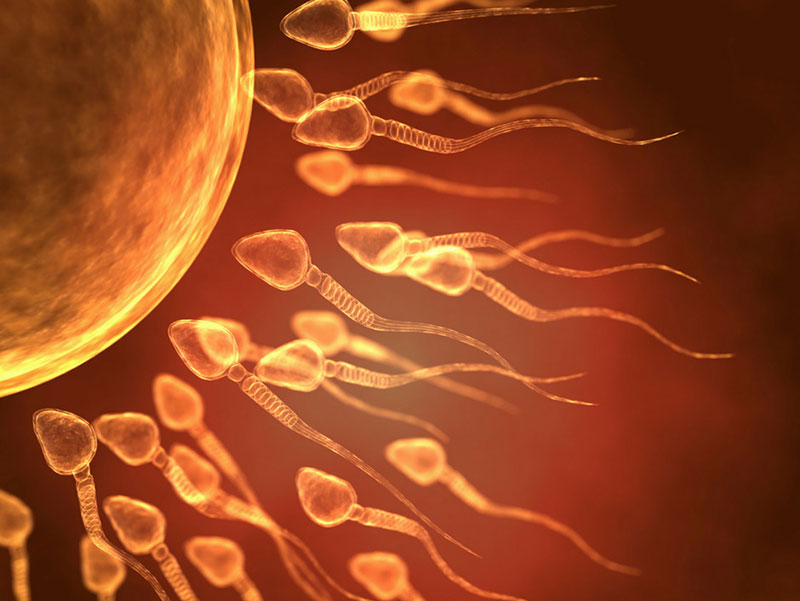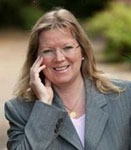Acupuncture for Fertility & IVF
Home > A-Z of Conditions Treated by an Acupuncturist > Acupuncture for Fertility & IVF
Infertility is defined by the NHS as the inability of a couple to get pregnant despite having regular unprotected sex and not conceiving within one year.
 Fertility problems are on the increase. Currently, around one in six British couples has difficulty conceiving. Fertility issues are equally common in men and women, and in a third of cases remain ‘unexplained’. There are many causes of infertility:
Fertility problems are on the increase. Currently, around one in six British couples has difficulty conceiving. Fertility issues are equally common in men and women, and in a third of cases remain ‘unexplained’. There are many causes of infertility:
FEMALE INFERTILITY PROBLEMS
Conditions affecting a woman’s fertility can include:
- Ovulation problems. Ovulation may be absent or infrequent due to Polycystic ovaries (PCO) or polycstic ovarian syndrome (PCOS), hormone imbalances (FSH, LH), thyroid disease (hypothyroidism or hyperthyroidism), premature ovarian failure, obesity, eating disorders, extreme weight loss or extreme exercise
- Damage to the fallopian tubes. Pelvic surgery or previous pelvic inflammatory disease (PID) may lead to scarring or blockage of one or both of the fallopian tubes. Previous sterilisation.
- Endometriosis, a condition where small pieces of the womb lining grow in other places, such as the ovaries and fallopian tubes, and interfere with normal function
- Conditions affecting the uterus, such as cervical mucus defect, scarring from cervical surgery and submucosal fibroids (which grow into the womb and may prevent an embryo from implanting itself)
Other factors that may play a part in female fertility include:
- Age, female fertility declines significantly during the mid thirties. According to the NHS, among women who are 35, 95% will get pregnant after three years of having regular unprotected sex. For women who are 38, only 75% will get pregnant after three years of having regular unprotected sex.
- Gynaecological problems, such as previous ectopic pregnancy or having more than one miscarriage
- Other medical conditions such as thyroid disorders, diabetes, bowel diseases such as Coeliac disease, anaemia, immune system disorders, hormonal imbalances due to nutritional deficiencies and epilepsy
- Lifestyle factors such as smoking, stress or being over or underweight
- Side effects of certain medications, such as long term use of NSAIDS or chemotherapy
- Use of illegal drugs, marijuana and cocaine
MALE FERTILITY PROBLEMS
Conditions that may result in male fertility problems include:
- Low sperm count, abnormal sperm quality and poor sperm mobility. Sperm counts in UK men have fallen by around 50% in the last 60 years. This has been attributed to a wide range of factors including, an increase in oestrogen content in the water supply (due to widespread use of the contraceptive pill), exposure to environmental or occupational chemical toxins, electromagnetic radiation from devices such as mobile phones, laptops and ipads, and a range of lifestyle issues, stress, diet, overwork, smoking, alcohol, and recreational drug use
- problems with the tubes carrying sperm, which could be scarred or blocked due to prior surgery or infection
- problems getting an erection
- ejaculation problems
- history of inflamed testes (orchitis), testes injury. Trauma to the groin area may result in production of antisperm antibodies
- prior radiotherapy or surgery, for example to correct a hernia, undescended testes or twisted testicles
- previous sterilisation, vasectomies can be reversed, but reversals are not usually successful
- a congenital defect (a problem with your testicles which you were born with)
- diabetes
- side effects of certain medical drugs, anabolic steroids and chemotherapy
- lifestyle factors including sport, such as cycling, wearing tight clothing, diet, exercise and overwork
Factors that can affect fertility in both men and women include: being overweight, a history of sexually transmitted diseases, smoking, exposure to certain pesticides, metals and solvents, and stress.
ABOUT ASSISTED REPRODUCTIVE TECHNOLOGIES (ART), IVF, ICSI, IUI
More women work than ever before. As a consequence many do not think about starting a family until later in life. Modern day life exposes us to considerable stress and many environmental toxins. As a consequence, the number of couples being referred to fertility clinics for ART is increasing.
In 2013, around 50,000 women in the UK had in vitro fertilisation (IVF), ICSI – a variation of IVF in which a single sperm is injected directly into a woman’s egg, or IUI, a form of direct insemination when a man’s sperm is placed directly into a woman’s uterus. Approximately 40% of these procedures were given on the NHS.
Acupuncture for FERTILITY
Acupuncture may help female fertility by:
- Regulating fertility hormones, including gonadotrophin releasing hormone, oestrogen and progesterone
- Increasing blood flow to the reproductive organs, to the ovaries and the uterus, thereby increasing the thickness of the womb lining in preparation for embryo implantation
- Increasing egg production and improving oocyte quality
- Enhancing luteal function
- Countering the effects of polycystic ovarian syndrome (PCOS), regulating the menstrual cycle in women with PCOS, reducing the number of cysts, stimulating ovulation, enhancing blastocyst implantation. It may also help control secondary effects of PCOS such as obesity
- Promoting embryo implantation
Acupuncture may help male fertility by:
- Lowering scrotal temperature
- Enhancing local blood flow and circulation
- Reducing inflammation
- Improving sperm maturation
- Reducing stress
Acupuncture for IVF
In a study by Paulus (2002), 160 women undergoing IVF with good quality embryos were split into 2 groups. Women in the first group had acupuncture both before and after the embryo implantation. The other group had no supplementary therapy. The pregnancy rates for the two groups measured by ultrasound at 6 weeks were 42.3% and 26.3% respectively. The pregnancy rate was 62% higher in the acupuncture group than the control group.
See also:
Treating Fertility
 “It’s very distressing to be told that you, or your partner, are ‘infertile’. It’s important to understand what this means. The definition of infertility is “the inability of a couple to get pregnant despite having regular unprotected sex and not conceiving within 1 year”. This could mean that you didn’t get pregnant yet! Unless there is very clear cut medical evidence that you can’t conceive, it may still be possible. You may be subfertile, not infertile.
“It’s very distressing to be told that you, or your partner, are ‘infertile’. It’s important to understand what this means. The definition of infertility is “the inability of a couple to get pregnant despite having regular unprotected sex and not conceiving within 1 year”. This could mean that you didn’t get pregnant yet! Unless there is very clear cut medical evidence that you can’t conceive, it may still be possible. You may be subfertile, not infertile.
For example if you are obese, losing weight may significantly improve your fertility. I have seen men and women in my clinic who, by changing their lifestyle, quitting smoking and drinking, improving their diet, reducing stress, taking regular moderate exercise, have improved their fertility sufficiently to fall pregnant naturally or to be more suitable for ART. It takes a lot of will power but it could be worth it.
Interestingly, many clients feel so much better once they have changed their lifestyle that they don’t want to go back to old habits after their baby is born. They may have rolled their eyes at me when I first suggested decaffeinated tea, but a year later they are the biggest decaff fan!
If you are aged 36 or over and suspect you may have fertility problems, see your GP as soon as you can. But don’t wait for the appointment or test results to start making good lifestyle changes. Buy a good fertility guide – I recommend Total Fertility, by Emma Cannon – and start making changes now. Acupuncture can really help. Most fertility clinics are delighted that their patients are having acupuncture, because it can improve success rates. So book your first acupuncture appointment. An egg takes 3 months to mature, so if you want to maximise egg quality for IVF, start your acupuncture at least 3 months before.
Take a deep breath and go for it!”
FURTHER INFORMATION
Human Fertilisation & Embryology Authority. www.hfea.gov.uk
HFEA. Fertility treatment in 2013: trends and figures. www.hfea.gov.uk/docs/HFEA_Fertility_Trends_and_Figures_2013.pdf
Paulus, WE et al. (2002). Influence of acupuncture on the pregnancy rate in patients who undergo assisted reproduction. Fertility and Sterility Vol 77, No. 4, April 2002
Total Fertility (2013) Emma Cannon, Macmillan
White, J. (2013). Gynaecology and Fertility. Naturechild
Research Fact Sheets
For more information see the British Acupuncture Council Research Fact Sheet below.
Testimonials
“Thank you so much for everything that you’ve done for us – I’m not sure if we’d have baby Mary now if we hadn’t had so much help and support.”
“I was recommended Judy through a friend who saw her for acupuncture treatment to work alongside fertility treatment. I have had a long journey of trying to conceive our baby and always found Judy very professional and helpful during our IVF treatment. The treatment itself is very relaxing, and always starts with a lovely massage. I would recommend Judy to anyone who wants acupuncture to work alongside fertility treatment. Our last round of IVF worked and our baby is due soon. “
“Dear Judy, I wanted to let you know that I often think of how helpful and calming you were during those stressful IVF rounds in 2017 and 2014. I always recommend acupuncture to anyone I know going through IVF as a result of the wonderful care I had with you.”
“Beautiful baby! I came to see Judy for a course of 8 fertility acupuncture sessions for IVF. She is really kind and supportive. I always felt great after my treatments. Judy was really flexible with appointment times, so I could get the right treatment at the right time. On the day of my embryo transfer I had sessions with Judy before and after the transfer. She even drove me home afterwards! In the final stages of pregnancy I had more acupuncture for induction and had a really easy birth. Now I have a happy healthy little girl. Judy I can’t thank you enough.”
“Judy is very passionate about her work and incredibly knowledgeable – she also genuinely cares about you. These are qualities that are very hard to find nowadays and when we decided to have IVF it was important to find someone who we trusted completely to join us on our journey.
I often recommend Judy to friends and family and will definitely use her in the future. My daughter is a happy, healthy baby and I can honestly say that I believe the treatment I had before and during my pregnancy, with Judy, contributed to this. “
“I went to Judy after lots of research on the benefits of acupuncture to help IVF treatments. From the very first phone conversation I knew that Judy would be able to calm me and help. I attended both her Crowborough and Tunbridge Wells clinics and both are great. Judy is incredibly professional and really puts you at ease, she listened very patiently to me and explained thoroughly what each treatment would aim to do. We opted to have acupuncture weekly and then to have one the day before and then one a few hours after implantation, followed by two more following implantation. I firmly believe that Judy is one of the main reasons that this cycle worked when others failed, we welcomed a very healthy Chloe into our lives in November and I will always be thankful that my google search led me to Judy. She is brilliant at her job and I cannot recommend her highly enough.”
“I couldn’t recommend Judy enough. We had had two failed IVF attempts and were losing hope until we decided to give acupuncture in conjunction with IVF a try. I was sceptical at first, but Judy explained how and why acupuncture can help. I felt it really helped and now from our third IVF cycle (first with acupuncture) I am the proud mum of a beautiful 5 month old baby boy. I will definitely be going back to Judy next time around.”
“I met Judy when my husband had treatment with her for a shoulder injury. I felt at ease from the minute I met her and have always been at ease when being treated by her. Subsequently we found out that it would be necessary for us to have fertility treatment to start our family. So I contacted Judy and we chatted over the options and booked in some sessions – never once did I feel pressured to continue with treatment and I felt that Judy was always very aware of the financial strain this was having on us.
Throughout the whole process I was positive, upbeat and calm. I genuinely believe this is as a result of the acupuncture treatment I had throughout fertility treatment and pregnancy. I did not suffer with feeling overly tired (despite working shifts) throughout the first few months of my pregnancy, nor did I suffer with morning sickness. I am convinced this was because of the treatment I had beforehand! I continued to see Judy throughout my pregnancy and every other day when my daughter went 2 weeks overdue, again she was flexible and happy to do anything she could to fit me in! “
I can’t thank Judy enough for her kind and patient care whilst going through our IVF cycles. My sessions were moments of real calm in spite of the stress and the calming effect really helped me cope. We were very lucky that our last cycle worked and we were blessed with two beautiful babies. Judy is a lovely person to help you stay balanced on the IVF rollercoaster, I can highly recommend her.



